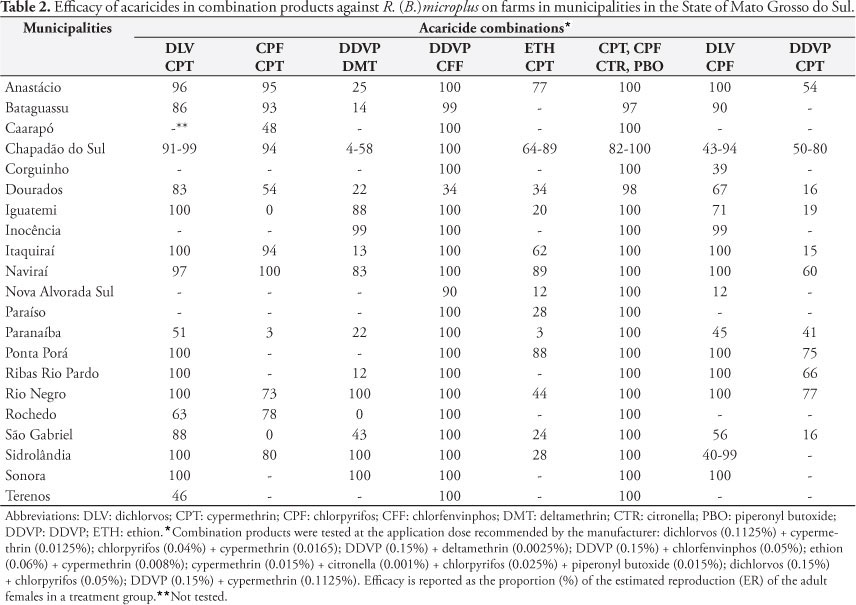This study was conducted to obtain an epidemiological view of acaricide resistance in populations of Rhipicephalus (Boophilus) microplus in the State of Mato Grosso do Sul. Twenty-four tick samples were collected from municipalities in the State where farmers had reported concerns about resistance to or failure of tick control. These ticks were subjected to in vitro resistance detection assays using the adult immersion test (AIT). The efficacy of alpha-cypermethrin, cypermethrin and amitraz treatments on samples collected throughout the State was generally poor. AIT showed efficacy > 90% from the use of DDVP + chlorfenvinphos) (20 out of 21 municipalities), dichlorvos + cypermethrin (10 out of 16 municipalities) and cypermethrin + citronella + chlorpyrifos + piperonyl butoxide (20 out of 21 municipalities). PCR assays were used to detect the presence of pyrethroid resistance-associated sodium channel gene mutation. Larvae from three different populations that had previously been diagnosed as pyrethroid-resistant, through AIT, were evaluated. The PCR assays showed that the pyrethroid resistance-associated gene mutation was absent from these three populations. This study confirms that the emergence of resistance is a constant challenge for the livestock industry, and that development of resistance continues to be a major driver for new antiparasitic drugs to be developed.
Tick; control; bovine; acaricide; PCR



